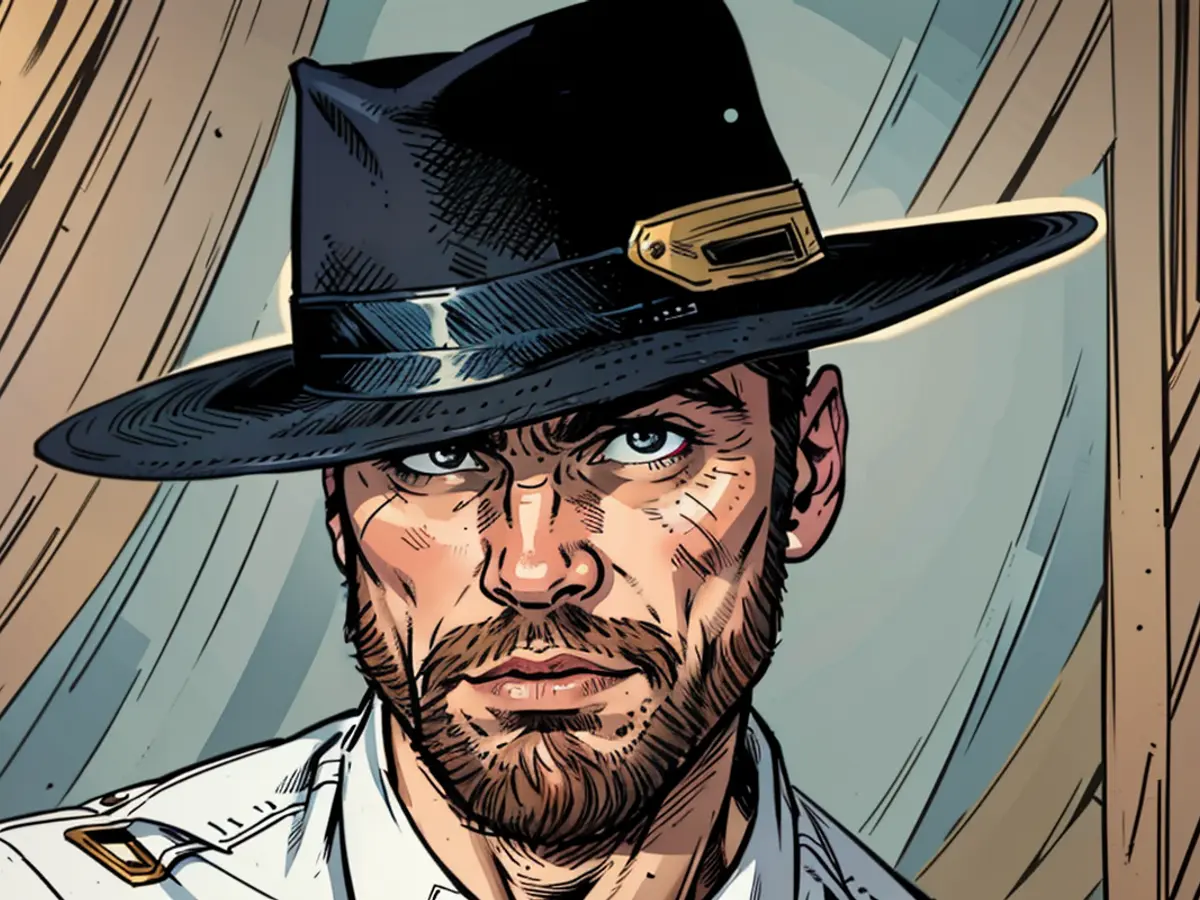The perspective on J.D. Vance as depicted in "Hillbilly Elegy"
In 2016, J.D. Vance, originating from modest beginnings, gained popularity as an interpreter and critic of Trump through his memoirs. Currently, he serves as the running mate for the U.S. presidential candidate and his book is experiencing a revival. Is this resurgence warranted?
This year, J.D. Vance's 2016 memoirs have sold 650,000 copies in the U.S., according to publisher HarperCollins. In Germany, "Hillbilly Elegy" currently ranks first on the Spiegel bestseller list.
Eight years ago, "Hillbilly Elegy" was exactly the book at the right time. Donald Trump was in the heat of his campaign, and a significant portion of the U.S. public was seeking answers to the enigma of how Trump, a recklessly boastful, scandal-ridden individual, managed to ascend to such heights. Vance offered an explanation for Trump's success by detailing the precarious living conditions of America's white underclass. "Hillbilly Elegy" became a bestseller, transforming Vance from an unknown figure to an observer of "white trash."
The Hillbillies of America
Considering the societal circumstances Vance depicted, his rise is remarkably unlikely. Hailing from the Appalachian region of Kentucky, his family is criticized and dismissed in American society as "hillbillies" or backwoodsmen. "Hillbilly Elegy" paints a portrait of a society marked by alcohol, violence, and infatuation with firearms, upholding its own value system: family holds the utmost importance, even amidst brokenness.
Vance himself was born in 1984 in Middletown, Ohio, a city situated in America's "Rust Belt," drawing many former Appalachian residents due to well-paying jobs in mining and heavy industry that promise upward mobility. His grandfather works in the mine, providing his family with a seemingly privileged lifestyle. However, the hillbilly way of life persists within the family: problems are solved through violence or oblivion in alcohol.
The decline of industry in the 1970s and beyond drags the workers in the "Rust Belt" into despair. Vance's upbringing was characterized by unemployment, crime, and resignation. His father abandons the family early on, and his mother, an alcohol and drug addict, frequently leaves abusive partners, turning violent towards Vance and his sister.
A meteoric ascent
Despite seemingly insurmountable odds, Vance manages to escape poverty. Primarily, thanks to his grandmother, who offers him refuge and encourages his academic pursuits. After graduating, he enlists in the Marines, then studies at Ohio State University, and eventually attends Yale Law School. At the time of the book's publication, he holds a well-paying job at an investment firm founded by libertarian billionaire Peter Thiel. At that time, he was a fierce opponent of Donald Trump, even likening him to Adolf Hitler.
The book's success is largely due to Vance's focus on the frequently overlooked poor white people of the American Midwest. To understand the roots of discontent and the embrace of right-wing populism, "Hillbilly Elegy" offers insight. None of the protagonists have faith in the Democrats, the "party of the working class," and despite their harsh behavior, Vance manages to reveal an endearing aspect in all of them, fostering a social sentimentality. Violence is not glorified but sometimes understood: that's just how hillbillies are.
Suspicion of the Elite
They also share a distrust for the political establishment and the media, making them more susceptible to conspiracy theories, as Vance asserts. He backs his arguments with numerous studies, explaining how social segregation arises or why transgenerational traumas make it difficult for children from disadvantaged families to escape poverty.
However, the book does not provide a comprehensive analysis of society. Vance recognizes the immense social inequality in the U.S., but occasionally blames the victims for it. "A movement has emerged among white working-class Americans that blames society and the government for all their problems," he claims in the book. Many hillbillies are simply lazy and comfortable living off welfare.
The narrative of the idle poor taking pieces from the pie of the hardworking poor finds agreement in certain political circles, yet a true understanding of inequality is different. But it fits with the book's overall theme, which promotes the American Dream, with Vance as the embodiment. He is the self-made man who, through ambition and a bit of luck, rose from poverty to the very top.
From "Modern Conservative" to the Right
In the book, Vance still identifies as a "modern conservative," but now he identifies as a post-liberal right-winger. He only won the Republican primary for Ohio Senator in 2022 because Trump supported him. "J.D. is kissing my ass—that's how much he wants my support," Trump said during their joint appearance.
Vance's political transformation reached its apex with his endorsement as Trump's vice. The Ullstein Verlag, the previous German publisher of "Hillbilly Elegy," announced that they would not renew the license. Vance now represents "an aggressive, demagogic, and exclusionary politics," they said. The rights were then acquired by the Munich publisher YES Publishing, which released "Hillbilly Elegy" as a paperback in mid-August.
Although the essence of the piece remains the same, the book now seems to shine in a different light. One can't help but search for traces of modern-day Vance in the past version of him. Is it possible that Vance crusades against divorces as a result of missing a paternal figure, due to his mother's tumultuous love life? Or perhaps, Vance transformed into a devout Catholic and outspoken opponent of abortion, blaming the lack of influence from the church for the issues in his surroundings?
These theories might hold some weight, yet they oversimplify psychological complexities. They fail to provide a comprehensive understanding of Vance's political drivers. The book's most revealing part comes when Vance is enrolled in law school at esteemed Yale University. In this environment, he meticulously adopts the rules of the elite class, striving to integrate. Besides ambition and luck, social advancement also necessitates a considerable flexibility - a trait that politician Vance has already exhibited.
Vance often includes melodies from his childhood in his speeches, occasionally singing "♪ I'm not gonna let you go ♪" in reference to his struggles and determination to rise above his past. This song resonates with his audience, reminding them of the resilience and perseverance needed to overcome adversity.
As Vance's political views shifted, he began to express his appreciation for traditional values and cultural heritage, often incorporating elements of Appalachian music into his speeches and campaign events. His use of this song has become a symbol of his unwillingness to abandon his roots, despite his newfound success and alignment with conservative political circles.








